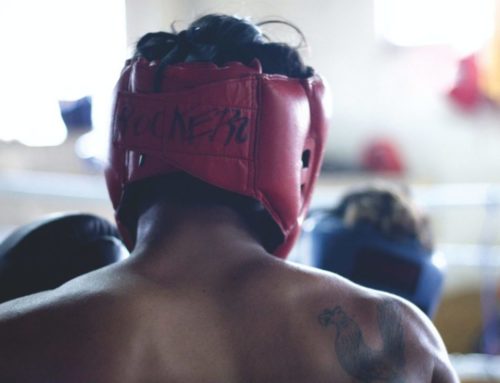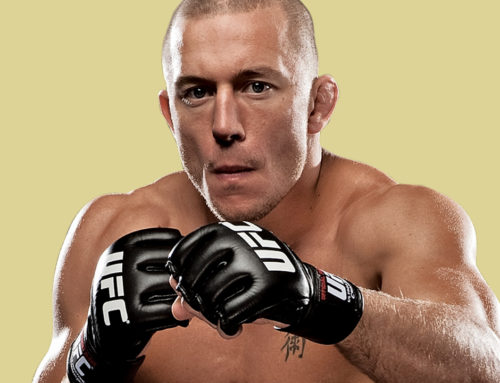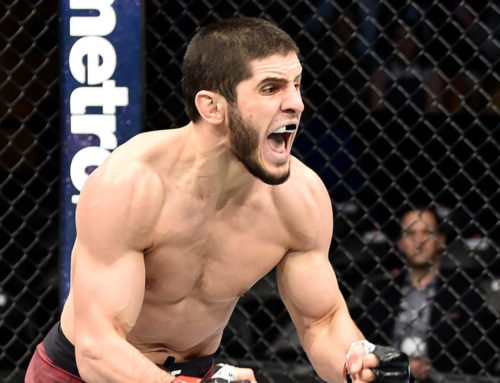Last issue, Fighters Only discovered MMA’s regional scene is in rude health. Its promotions are prospering and giving some of the world’s most exciting up-and-coming fighters the opportunity to showcase their skills. That exposure can get them noticed by major organisations that can take their careers to the next level. But how willing are promoters to let their prize assets leave for pastures new?
Moving on
Regional promoters expect their most popular and talented fighters to leave them eventually. Every ambitious mixed martial artist wants to test themselves against the best and earn as much money as they can. Joining the elite leagues is a necessity to follow their dreams.
If all promotions were created equal, every one would try to hang on to their best fighters. Better athletes usually mean better fights, more butts on seats and more money. Unfortunately, the reality isn’t like that, but that’s OK. Almost without exception, promoters are thrilled when fighters make that step up to the elite level.
Jude Samuel, matchmaker for top British promotion BAMMA, says: “We would like to keep every single fighter we have on the roster and have them as long as we possibly can. But, there is that underlying thing in the shadows that goes, ‘The UFC is calling.’ (Fighters) want to play in the premier league. Absolutely we wish them no ill will for wanting to better their careers in that way.”
Athletes will also get the chance to earn bigger paydays too. There’s money to be earned on a lower level from purses and sponsors, but it’s nothing compared to what can be gained in front of millions of viewers on the biggest stage.
“Here’s the thing, they’re prizefighters,” says Legacy Fighting Championship president Mick Maynard. “We just can’t give them the same opportunity as the UFC. We can’t pay them that money. We’ve had Thomas Almeida go and win a $50,000 bonus for every one of his fights on top of his (purse). That’s life-changing money if he’s smart. For us to prevent people from getting that opportunity would be incredibly unethical.”
Often promoters are powerless to stop someone who’s UFC-bound. Many have clauses in their contracts that say they are free to leave if a major promotion comes calling for their services. But not every one, including Invicta Fighting Championships, run by president Shannon Knapp.
She says: “I don’t put UFC ‘outs’ in my contracts. If an athlete signs here and their aspiration is to fight in the UFC, they’ll come to me. They’ll have to take my word that when that time comes I’m willing to let them move on. When that time comes and they asked me I’m never offended. I get it.”
Other promoters may not be quite as accommodating, but Knapp adds that’s the wrong way to play the game. “You still have promoters that dig in and say they’re not going to let their athlete go, that the promotion put their money in, gets behind them, scouts them. It can be disappointing but it’s all in the way you look at it. For someone like me, the whole purpose is to bring the sport along, help it grow and help the athletes achieve those goals.”
However, just because promoters want to see their fighters take the next step in their careers, that doesn’t mean they don’t suffer the consequences.
Roster raids
Mark Bieri, matchmaker for the Resurrection Fighting Alliance (RFA), knows all too well what it’s like to have some of his top fighters taken from him. He tells Fighters Only that if his most talented fighters and champions continue to perform, it’s more than likely they’ll be on the UFC’s shortlist.
That was true for recent Octagon acquisitions Luke Sanders, Jocelyn Jones Lybarger, Bojan Velikovic and Andrew Sanchez. They were all recruited by UFC matchmakers Joe Silva and Sean Shelby in the last year before they even had the chance to defend their belts. They joined the likes of Brian Ortega, Zach Makovsky and Sergio Pettis, who moved to the Octagon shortly after capturing RFA gold. No sooner had they become RFA draws, they were on their way.
Promoters count on popular fighters to sell tickets and draw a TV audience. If they’re poached, the show could find itself without a headline attraction. That could have been the case when UFC president Dana White scouted one of the hottest properties in the United States.
Maynard explains: “Interestingly enough, when Sage Northcutt got the call it was only two weeks out from our event. That was brutal. We generally have a rule: if it’s within 30 days they can’t go. Not to be a jackass, but man, we’ve still got a show to put on.
“The thing is, I asked the UFC if it was still OK if he fought and they said, ‘Yes, we don’t want to mess up your show.’ If Sage had lost, he wouldn’t have gone to the UFC. He won and the rest is history. If it’s really that bad I can get hold of the UFC and they’ll work with me.”
Even when the UFC wants to sign a fighter it usually won’t just flex its muscles and pluck a prospect from an event. It doesn’t want to cripple the organisations that provide them with so much talent – even if that means a potential hype train could be derailed before it’s even left the station.
The exception to the rule is when the UFC launches a new division and almost all of the world’s top talent is found in one place. When the women’s 115lb weight class was introduced to the Octagon it needed 16 of the best strawweights in the world to compete for the belt on The Ultimate Fighter. Most fought in Invicta. Cue the biggest talent purge in recent memory as Knapp waved goodbye to a huge chunk of her roster.
But far from being the death knell for Invicta’s deepest division, Knapp actually saw this as an opportunity. She explains: “I saw all the stuff written out there saying, ‘Invicta’s going under.’ There’s so many young athletes out there. Sometimes I have to clear the roster to be able to bring that new talent in and bring them along.
“I never look at it like we’ve been stripped. My task when an athlete moves over is to shine a light on the new athletes. A lot of times, the general fan doesn’t know them and it’s my job to make sure they figure out who they are.”
Knapp isn’t just trying to find the positives in a negative situation. Her mission was always to get females onto the biggest stage. She plans to rebuild all over again when the UFC starts a women’s flyweight division. She says: “The 125lb division is more stacked than 135. My goal is to build that division until the UFC can’t ignore it and give these athletes the opportunity.”
No exit
Just because most bosses in the top regional promotions say they’re happy to see fighters make it to the big show, that doesn’t mean they always think it’s the best idea. Though no one says they would stand in a fighter’s way, they do want them to have the best chance of success when they move on.
Samuel says he doesn’t like to see fighters move to make a quick buck, or if they don’t have the skills. “I’m happy when they do it the right way,” he says. “I’m a jiu-jitsu coach, and when a guy in the UFC comes to my gym and his jiu-jitsu isn’t as good as one of my blue belts I’d think, ‘Why are you in the UFC?’ You should be at a certain level, have a certain mindset.
“This was a trend in the last year, especially when TUF comes around. You can probably put a timeline on it from when they did TUF: The Smashes to the middle of last year when there was a huge influx of guys from the UK and Europe going into the UFC. I thought it was too soon for these guys… Guys like Norman Parke and Jimi Manuwa stepped in at the right time – you can’t argue with Jimi (laughs).” Tom Breese was another who proved he stepped up at the right time after winning a belt in Britain’s biggest promotion.
Knapp also says she’s put her arm around athletes to give them the best chance of success. “Take Alexa Grasso,’ she recalls. “Dana says how much he thought she was amazing and could be a star. She’s a young athlete so I would say get more experience here before you go because that’s a deep division. I built that division so I know! When I don’t want to see a young athlete thrown in the deep end I would have that conversation.”
The same goes for fighters who would have to drop down or jump up in weight to fight in the Octagon. “Make it your goal to get your division in the UFC,” Knapp adds. “Make enough noise that they cannot deny your talent. You’re sacrificing your quality by making the concessions to move weight class.
“I would want to be standing at the top of the hill in the division – even if the UFC doesn’t have it – because I know if I’m good enough they’re going to take notice of me, and if they take notice of me I’m shining a light on a whole division. There’s a lot of pride in that. Look at (Invicta flyweight champion) Barb Honchack. She’s an incredible athlete. She’s too small for 135lb and I do think she’s too big for 115.”
The last thing Maynard wants is to see a fighter he’s helped to build go into the UFC like a lamb to the slaughter. He will also weigh in when an offer comes in because he says most promoters really do want to see their fighters do well when they move on. “I’ve done it a million times,” he explains. “I’m very vocal with my opinions with them and lay out the options. In the end it’s their decision but I just try to help them. I care about them.”
Proud parents
Ultimately, promoters are happy when fighters graduate from their cages the right way and find success elsewhere. It’s an endorsement of the quality of their company and could attract more eyeballs in future as fans clamour to get a first look at the stars of the future.
“I want them to be successful,” says Knapp. “It’s a reflection on what I’m doing here and that’s personally and professionally gratifying. It’s a proud moment as if you’ve just raised a child and sent them off into the world – to help someone take that next step to where they want to go.
“There was a time when I was one of the only females in the sport and I’m the first female exec. I’ve had people on the way give me the hand up and I think it’s important to get behind and push people.”
Lou Neglia sent champions like Chris Weidman and Frankie Edgar – as well as dozens of others – to the UFC. He’s happy to continue to flood the Zuffa roster with potential future champions. Fans know they could get a sneak peek at future PPV main-eventer when they buy a ticket to his shows.
“Ring of Combat has almost been branded as an organisation that finds new talent,” he says. “Not only am I proud the ROC guys get in the UFC, they are successful… So many people became millionaires. You have people knowing names of fighters to a degree they never knew. It’s great for everybody.”
Maynard says he feels the same way: “I take a great sense of accomplishment when they go there. I continue to follow them throughout their careers and I get into it big-time when they win. I hate it when they lose. Our goal is to have every UFC champion come from Legacy. It may be difficult but we’ll give it a whirl.”
*** This feature originally appeared in the July 2016 issue of Fighters Only magazine ***






